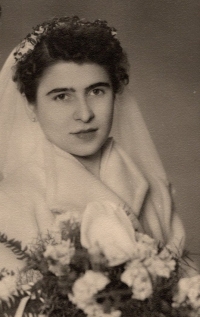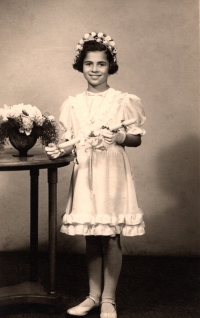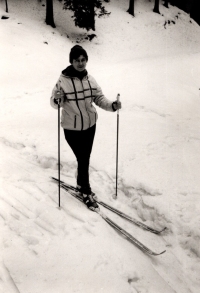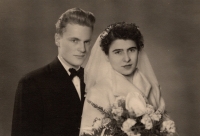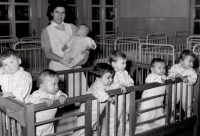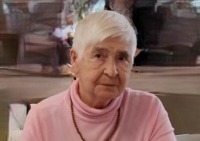Mothers brought their children to the weekly nursery on Monday morning and took them home on Saturday afternoon

Download image
Jarmila Jelínková was born on 11 January 1937 in Brno. She grew up in Břeclav, a town in southern Moravia where Germans, Jews and Czechs lived side by side in relative peace before the Second World War. When she was six years old, a tragic event hit her family. A fire broke out in the house where she lived. The witness was saved, but her mother was not. Jarmila Jelínková grew up with her aunt and uncle. During the war, Břeclav, as a border town, was seized by the German Reich. Jarmila Jelínková experienced escapes from air raids and the removal of Jews from the town. During the liberation of Czechoslovakia, she witnessed the death of a 16-year-old German soldier. After the war, she graduated from medical school and worked in week and factory nurseries, facilities that allowed working women to return to work early under socialism. In 2024, at the time of the recording for Memory of Nations, she was living in her flat in Zlín and told future generations that it was important to make sure there was no more war.
